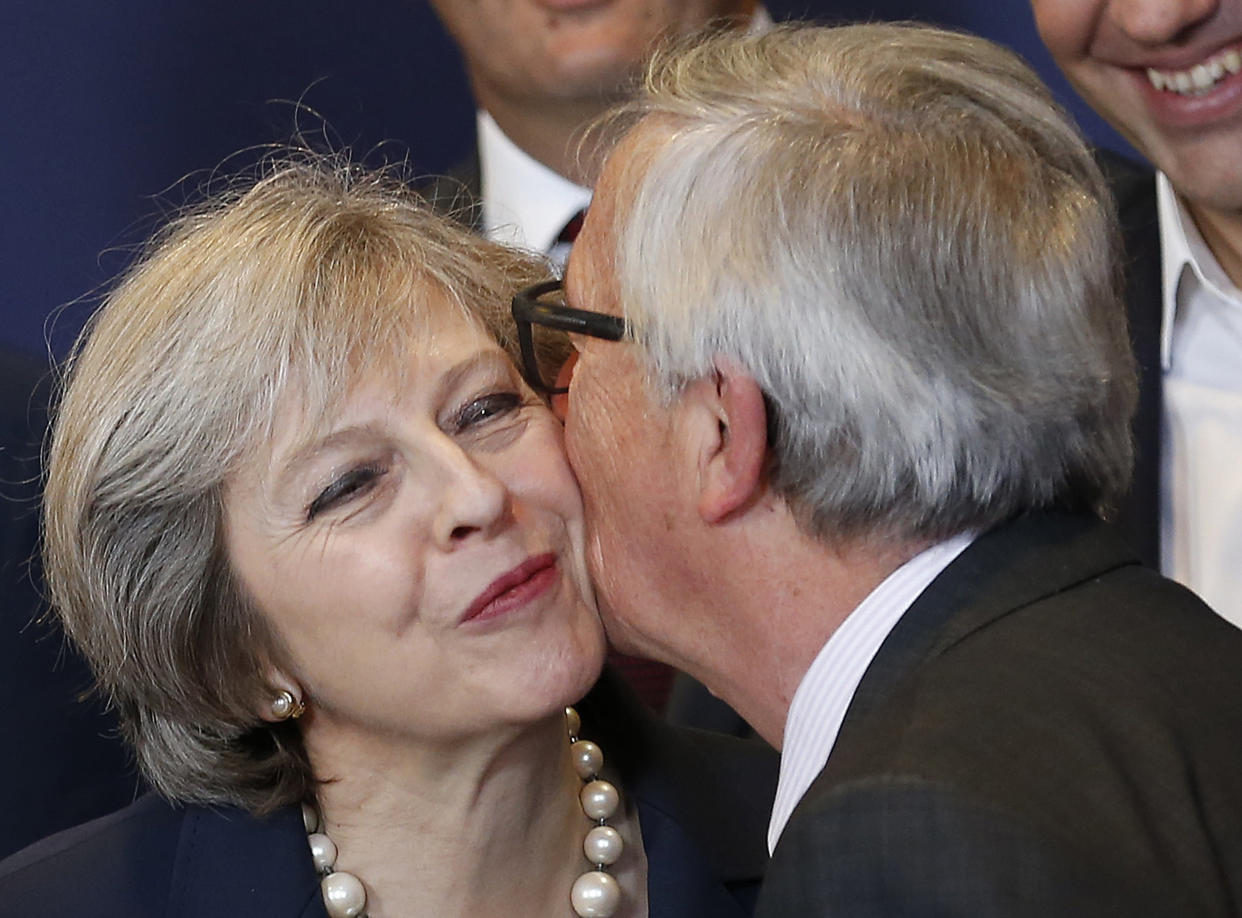Five ways Britain could negotiate better with the EU

Brexit may have wiped almost all else off the top of the agenda in the UK for the past three years, but official talks with the EU over Britain’s future relationship have not even begun.
The negotiations with Brussels so far revolve around the terms of Britain’s divorce, as well as a political declaration that will only guide the far more comprehensive talks ahead on a future agreement.
The Institute for Government (IfG) think tank warns the British government it must learn the lessons from failures in its handling of Brexit so far, to avoid repeating them during negotiations in the months and years to come.
Here are some of its key recommendations from a damning new report on how Theresa May - or her successor as UK prime minister - should ensure Britain negotiates from a stronger position next time round.
Decide clear objectives, and decide fast
Britain’s years of political conflict and paralysis over the terms of the divorce mean the IfG feels compelled to state the seemingly obvious - that the government must choose fast and choose clearly what its objectives are.
It points out that even the Chequers agreement, which sparked months of rows and resignations, was a compromise the cabinet only reached a whole six months after the EU had agreed talks could start.
It says the government should use the extension of Article 50 until October to agree and publish a mandate for its vision, which must be ambitious but achievable.
READ MORE: New EU law stops employers seeking revenge on whistleblowers
The report notes: “The time available to conclude an agreement by the end of transition in December 2020 is already very short and it is far from clear that the UK is ready.
“The government will require detailed negotiating positions – and a clear strategy for achieving them – on everything from financial services to participation in EU military missions. The government will also need to define what it is not prepared to accept.”
Avoid divisions among key players
Split responsibilities between Downing Street and the department for exiting the EU (DexEU) “caused tensions and ultimately proved unsustainable,” according to the IfG.
Confusion and division, the “secretive approach” of the prime minister and her advisers and the related loss of two Brexit secretaries put the UK in a poor position to negotiate effectively.
The IfG recommends appointing a senior cabinet member as a deputy based in the cabinet office, “avoiding the risk they have a separate departmental agenda” and ensuring they are “capable of knocking departmental heads together.”
It says the Chancellor of the Duchy of Lancaster, currently filled by David Lidington, is the best role for the job, warning DexEU “cannot co-ordinate the negotiations.”
Fully engage parliament and devolved governments
May’s administration “engaged Parliament late, alienated the devolved governments and did not make use of external expertise,” the report’s authors suggest.
The IfG says the ‘meaningful vote’ was only granted to parliament after a hard battle, while the government’s rift with Scottish authorities was so significant the Scottish Parliament failed to consent to flagship Brexit legislation.
“Engaging a Scottish government committed to independence was always going to be challenging, but this does not excuse the failure to follow through on the prime minister’s early promises,” it argues.
Parliament should be entitled to debate thoroughly a detailed mandate published by the government on its negotiating ambitions, and to see the key documents underlying government decisions.
Listen to outside voices
The government has been “slow,” “secretive” and “defensive” taking into account the views of vital voices in the debate, from businesses to unions to civil society.
It points out the EU did the polar opposite, making “a virtue of its transparency and willingness to engage.”
READ MORE: Small firms demand vouchers to pay for Brexit planning costs
The report says: “If the government is serious about negotiating a future relationship that works for the whole UK, that needs to change.”
Proper structures should be created to ensure a genuine and effective dialogue with external bodies, rather than the “one-way flow” from the government so far, according to the IfG.
Tread cautiously with ‘divide and rule’
The IfG claims one of the biggest failures of the UK so far has been its “divide and rule” tactics, saying they “cut little ice” with European leaders.
“Tone deaf interventions” by senior politicians for domestic audiences also derailed efforts to go over negotiators’ heads and appeal to individual nation state’s interests, the IfG says.
But the IfG points out EU member states’ different interests will be more pronounced in future talks in areas like trade, arguing the government must fully understand each country’s interests and concerns by using its network of embassies and mission in Brussels.
It says Britain must pay particular attention to states who may veto an agreement, and to friendlier countries that can help secure the EU countries’ unanimous backing for a deal.
The sidelining of the Foreign Office so far, it adds, has been a “major error which must not be repeated.”


